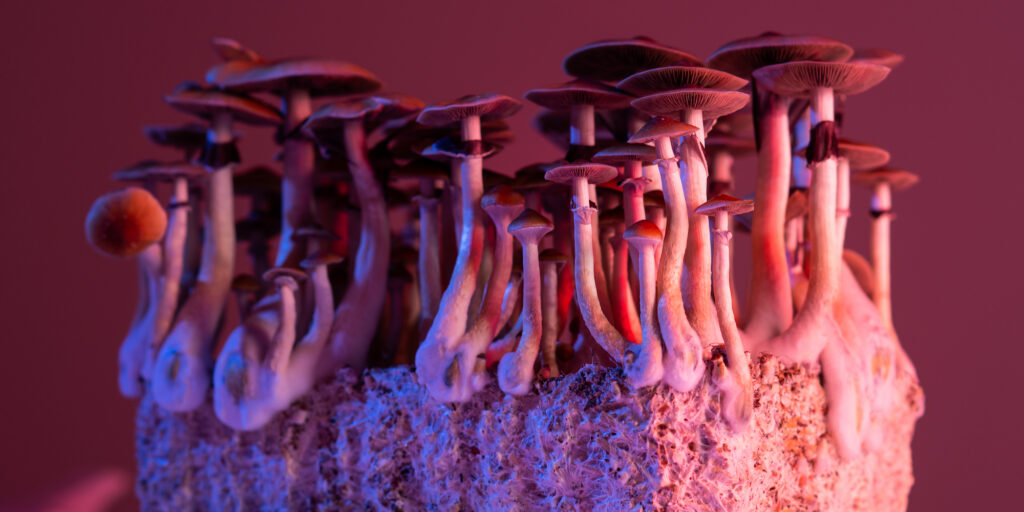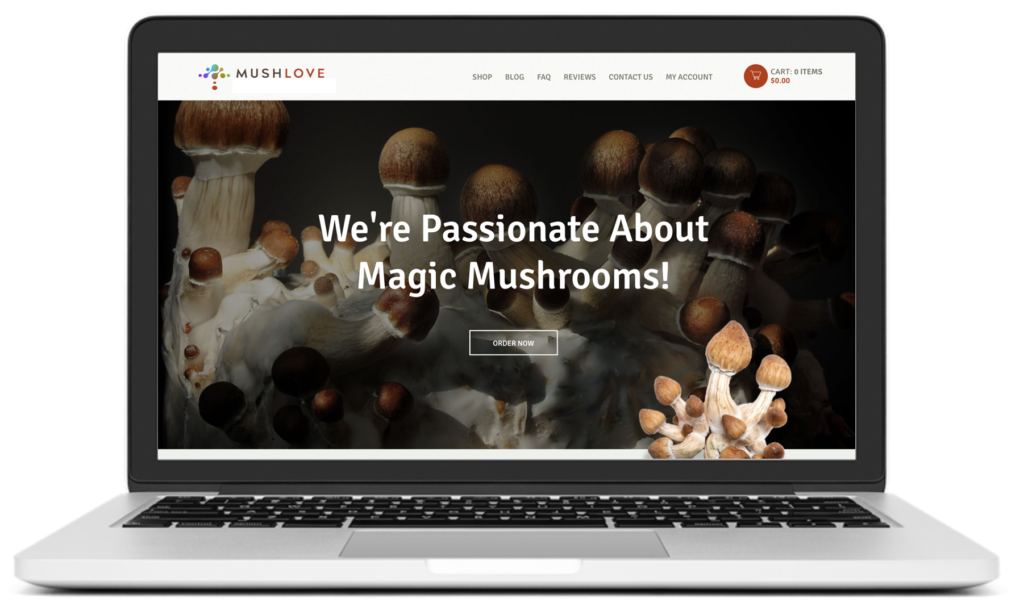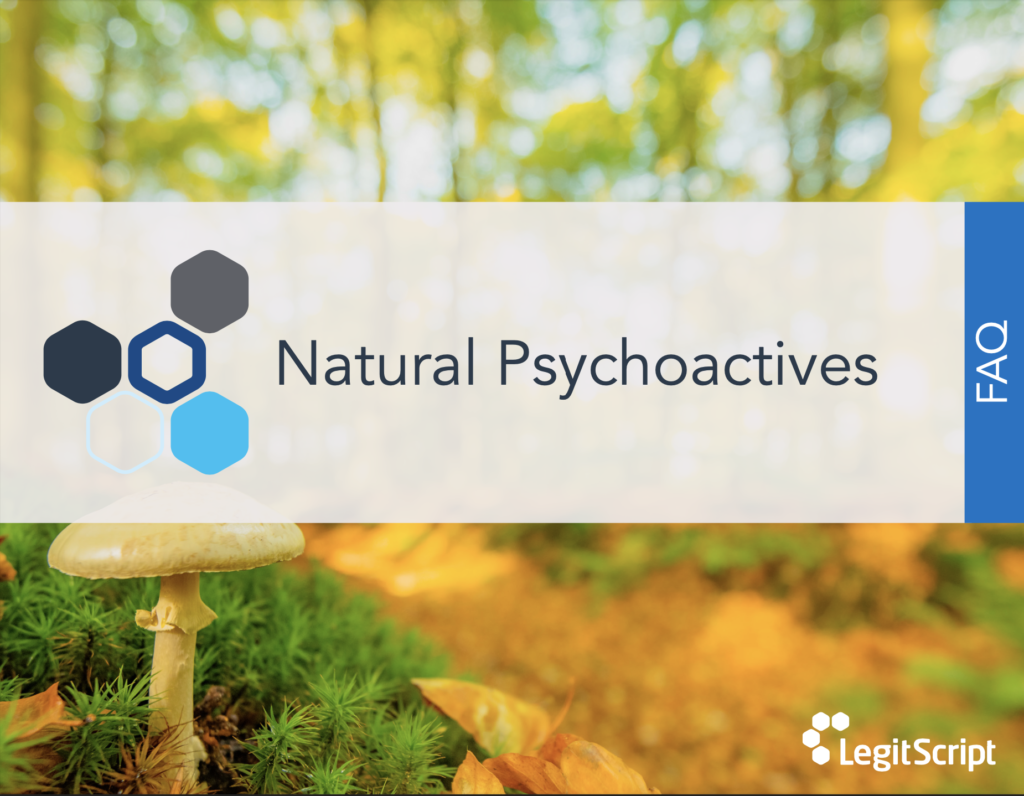On recent news that the White House is exploring the possibility of creating a federal task force to “explore the potential of psychedelic-assisted therapies” in the United States, certain psychoactive substances seem to be having a moment. Public awareness of these substances appears to be increasing in tandem with government interest; take, for example, the five-fold increase in online searches for the term “psilocybin” in the past five years.
This surge in interest in psychoactives, combined with limited legalization rolling out in states such as Oregon, makes it important to understand the regulatory standing of psychoactive substances and the risk factors associated with online marketing and sales. In this blog post, we explore the basics of psilocybin and describe problematic products commonly sold online that you should watch out for.
What is psilocybin?
Psilocybin, also known as 4-phosphoryloxy-N,N-dimethyltryptamine, is the psychoactive substance in “magic mushrooms.” These types of mushroom grow widely in the Western Hemisphere, especially in tropical and subtropical regions of South America, Mexico, and the United States. Psilocybin use has a long cultural history; the mushrooms were ingested by indigenous cultures from Mexico and Central America during religious ceremonies. Common methods of ingestion include dried or fresh mushrooms on their own, mushrooms mixed with food, and tea made from brewed mushrooms. Psilocybin is naturally occurring and is not commonly produced synthetically.
What is the regulatory status of psilocybin?
Despite federal interest in the substance, psilocybin is currently a Schedule I controlled substance in the US. According to the DEA, there is no currently accepted medical use for psilocybin, and it lacks accepted safety for use under medical supervision.
Even so, psilocybin advocates have been shifting public perception in recent years through greater media coverage, clinical interest, and local ballot measures meant to decriminalize the substance. Oregon was the first state to legalize psilocybin for medical purposes in November 2020. The Oregon Psilocybin Services Act (Measure 109) aims “to license and regulate the manufacturing, transportation, delivery, sale and purchase of psilocybin products and the provision of psilocybin services.” After a two-year development period, the Oregon Health Authority will establish rules and regulations around the use of psilocybin products and services to ensure that psilocybin is “a safe, accessible and affordable therapeutic option for all persons 21 years of age and older.”
Over the last few years, several pharmaceutical companies have begun studying psilocybin for the treatment of various mental health conditions, and the FDA has granted Breakthrough Therapy designations to the substance for such uses, which is intended to expedite the development and review of drugs.
What potentially problematic psilocybin products are sold online?
Some products sold online that may not be subject to an explicit legal prohibition but still may violate a company’s terms and conditions or cause reputational harm.
Online searches for psychoactive products often yield results for potentially problematic psychoactive-adjacent products that attempt to skirt the law. For example, a consumer may discover websites selling magic mushroom grow kits, such as the one featured below. The spores in these kits do not yet contain psilocybin and, therefore, are not clearly illegal in many jurisdictions. Buyers of these kits can then cultivate these spores into psilocybin mushrooms.
Want to learn about other psychoactive substances?
Download our Natural Psychoactives FAQ to learn about DMT, mescaline, salvia, and more. It discuss the various legal approaches to these substances in the United States, shows how merchants try to circumvent card brand rules around these products, and providse a case study to help illustrate the availability of these products online.






